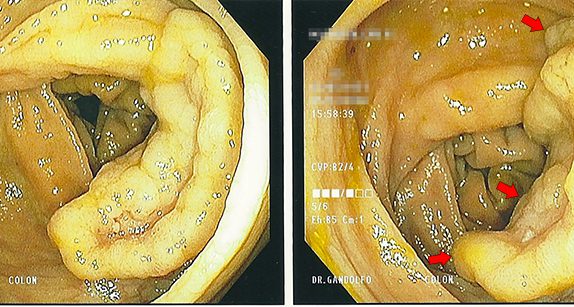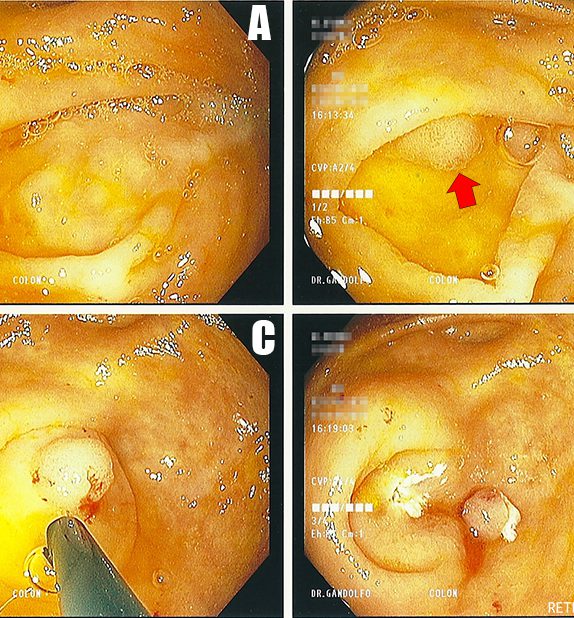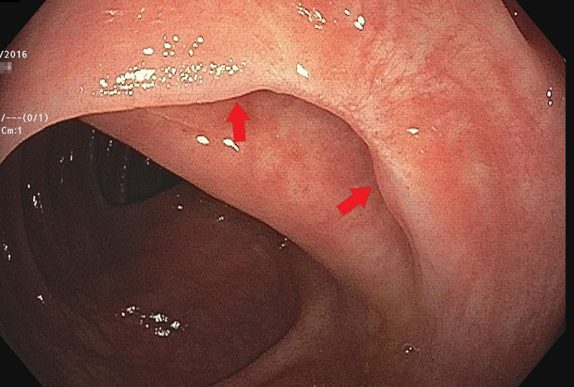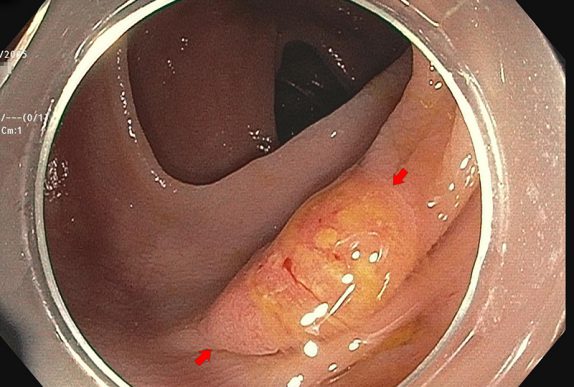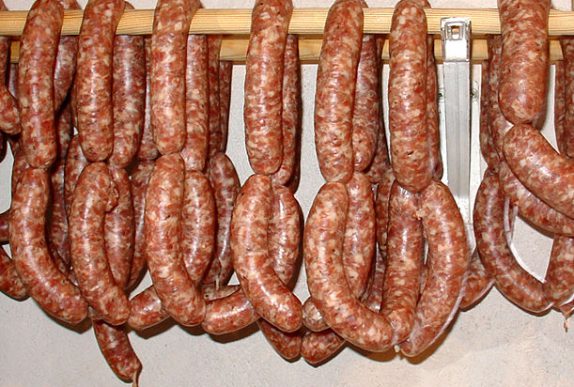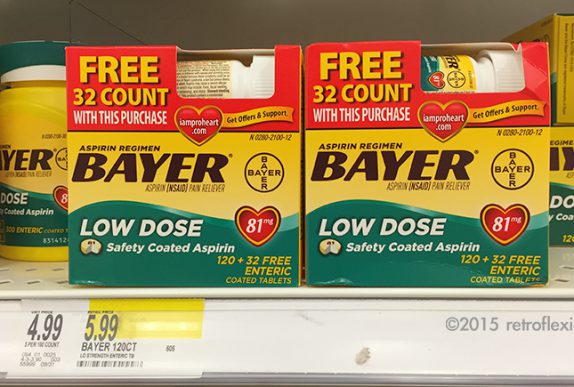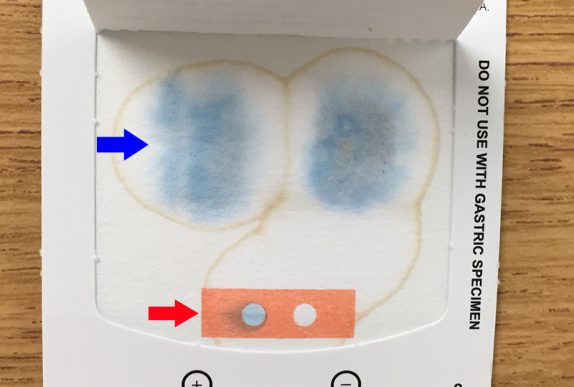Sometimes repositioning the lesion is what it takes to get it done. A better angle between the snare and the polyp can be the difference between sliding over the top or capturing the lesion. In this case, retroflexing the scope in the ascending colon was the key maneuver needed to get the rest of the polyp out.
If you notice, the basic idea here is pretty simple. According to the guidelines, there are really only a few options for follow-up intervals for colonoscopy: 10 years (negative exam), 5 years (low risk polyps), and 3 years (high risk polyps). Less than 3 years is only recommended in the truly unusual case of a large polyp burden or invasive cancer in a polyp. And that's it.
I thought it would be a good time to show a real-life example of colorectal cancer prevention in action. Let's pretend that you are a friendly neighborhood gastroenterologist, just minding your own business and doing a screening colonoscopy on a patient.
It is sometimes an awkward conversation to have, but the truth is that at a certain age, we eventually stop checking people for things that may cause them future harm.
Clearly, the screening guidelines recommend repeating a negative colonoscopy in ten years. Now what if I told you that many (if not most) practicing gastroenterologists recommend repeating the test in five years, not ten?
If there is one take-home message for colorectal cancer screening it is this: Start screening most people at age 50. Colonoscopy is the preferred screening test.
Three month follow up after removal of a small colon tumor with colonoscopy. Did the resection work, or did the patient ultimately need surgery?
It is common practice to leave a permanent tattoo at the site of significant pathology ( such as a large polyp or tumor) inside the GI tract. We typically use a substance called SPOT, which consists of microscopic carbon particles in a suspension. When injected into tissue it becomes a permanent mark that can be seen from the inside of the organ with the scope, and from the outside of the organ by a surgeon.
I was surprised when the pathologist called me a few days later about the patient, since pathologists usually only call when a result is malignant or unusual. This "polyp" which I estimated to be about 15-mm in greatest diameter was a serrated adenoma (not a surprise) but also contained an 8-mm focus of adenocarcinoma. Luckily, the carcinoma portion of the polyp was completely resected with clear margins on all sides, however this polyp was truly an early-stage colon cancer!
So what does this all mean? Should you never eat red meat? Is this the end of the bacon cheeseburger? Of course not! When faced with information like this we really need to step back and look at the big picture. How much do you enjoy eating a juicy steak or a grilled hot dog on a warm summer day? What is the purpose of life? What is the lifetime mortality of someone who never eats red meat? (Hint: it's 100%.) Let's not forget that red meat is also an excellent source of protein, iron, B vitamins, and zinc...oh, and it tastes pretty good too!
For many years, the effect of NSAIDs on preventing colon cancer has been described. There are numerous studies showing a small but mostly consistent decrease in both the development of polyps, and the development of colorectal cancer with chronic NSAID use. However, thus far there has not been a recommendation to take NSAIDs specifically with the goal of reducing the development of colon cancer, since the risk of chronic NSAID use is thought to outweigh any benefit in cancer prevention.
Of the cancers that both men and women can get, colon cancer is the second leading cause of cancer death in the Unites States. Colonoscopy, when performed by an expert with an adequate adenoma detection rate, has been shown to reduce the risk of developing colorectal cancer. For most people, routine screening colonoscopy is recommended starting at … Read more
Occult gastrointestinal bleeding simply means that there is blood loss into the GI tract that cannot be seen with the naked eye (as opposed to overt GI bleeding, where blood is seen). Typically, patients with occult GI bleeding have slowly progressive anemia due to slow chronic blood loss. There are a variety of causes of … Read more
Bad news is always hard to break. I would like to think that I get better at breaking bad news after doing it over and over, but it doesn’t make it easier. Some experiences stick with you and this is one of them: Several years ago I was making rounds in the hospital and my … Read more
